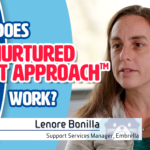As a resource parent, the line between your rights vs. your responsibilities can sometimes become blurred. Understanding how the two work together will give you more insight into your role as your child in placement’s primary caregiver and will empower you to be a stronger advocate for him.
Information
- You have the right as a foster parent to full disclosure as per the Division of Child Protection and Permanency’s (DCP&P) policy. Before the child enters your home, you should receive all information necessary to provide the appropriate care and supervision for him. If you do not have what you need, contact his Family Service Specialist (FSS) – also known as the child’s caseworker.
- It is your responsibility to maintain the confidentiality of all information provided to you about the child. For example, sharing details about him on social media is prohibited. Revealing the child’s identity can put him at risk of being bullied or inappropriately contacted.
Documentation
- You have the right as a foster parent to document the actions of everyone involved with the child’s case; you also have a right to document the child’s behaviors.
- It is your responsibility to obtain your own notebooks to document information about the child. Having the proper documentation will not only be helpful to the child if you have to provide evidence that he needs specific services (e.g., therapy) but can also protect you if an allegation arises.
Identification
- You have the right as a foster parent to ask for identification from everyone who comes into your home concerning the child. Obtaining ID will keep you informed of who enters your home and make all of your guests aware of how important the child’s safety is to you and your family.
- It is your responsibility to know your caseworker, also known as the Resource Family Support Worker (RFSW), the child’s Family Service Specialist (FSS) and everyone involved with the child’s case, as well as their contact information. Having their information on hand will help you address time sensitive issues, such as medical emergencies, immediately.
Advocacy
- Even though you are not a part of the child’s case, you have the right as a foster parent to be heard in court.
- It is your responsibility to voice your concerns to caseworkers, law guardians and judges. Since the child lives with you, you have first-hand knowledge of what will help him thrive.
Resources
- You have the right as a foster parent to advocate for yourself and the child by requesting services. Knowing what resources are available and how to access them will help you to provide the child with what he specifically needs (e.g. Tutoring).
- It is your responsibility to advise caseworkers of the child’s needs, as well as the needs of your family. Making your case workers aware will allow them to give you and your family the support you need. Caseworkers have many other families to help, so it’s important to ensure the needs of the child and your family stay on their minds.
Biological Family
- You have the right as a foster parent to bond with the child’s biological family. Establishing a strong connection may allow you to remain in contact with the child if he returns home.
- You have the responsibility to build a positive relationship with the biological family. DCP&P’s goal is to reunite the child with his relatives if possible. Showing the biological family how you care for him and encouraging their efforts to do their best parenting can make reunification easier for everyone.
Visitation
- You have the right as a foster parent to be included in negotiations to determine the child’s visitation schedule with his biological family. Since you will be taking him to visits, you must have input to ensure you are able to keep each appointment.
- You have the responsibility to adhere to the visitation schedule that is set in place. Structure and stability are important for the child. Not only does he need to see his biological family on a regular basis, but he also needs your support and encouragement.
You are the voice for your child in placement. Exercising your rights and upholding your responsibilities will help you provide the best possible care and better prepare you for the challenges that lie ahead. Being heard is essential for you to get the results you, your child in care and family deserve.



im a kinship foster parent who was given care of my cousins baby girl at 2 weeks old, the parents lived with me first then baby went from caretaker to foster mom after mom and dad had 2 failed drug tests. they were told to move out but they didn’t nor wont. they go partying for at least 2 days then come back, ive told them several times to leave but they won’t, they tell me i want to take their daughter, they wont stop drinking and keep the baby in a room 24/7 i don’t want to lose the baby and they threaten to tell dhs im letting them stay here. i dont know what to do.
Hello Sherry and thank you for reaching out to us. It sounds like you are in a tough situation. There are a few questions that come to mind. First, are you a NJ resident? In New Jersey, it is against policy for the biological parents to remain in the home with the child. It seems like you and the bio parents are aware of this, which is why the parents are threatening to inform the state. Also, who exactly told the bio parents to leave the home? Was it court ordered? Either way, you should be able to reach out to your local authorities for the removal of the parents. I would, in addition to that, document that occurrence and reach out to the child’s caseworker and inform them of the steps that have been taken to have the bio parents removed.
If you require further assistance and reside in NJ, please free to reach out to us at 800.222.0047.
Warm Regards,
Jessica Hernandez
Family Advocate
It’s interesting to know that foster parents have the right to bond with a child’s biological family to being in contact with him if he returns home. My brother and his wife are thinking about being foster parents, and we are looking for advice. I will let them know about the importance of creating a connection with a kid’s biological family to keep in touch with him.
I have a kinship of my two grandchildren. 2 month old and 12 years old. The baby was just 6 days old when I got her and my oldest granddaughter was already living with me. They were removed because of my daughters drug abuse. She has been clean for 90 days and is ready to leave rehab and continue with out patient care. We both agreed on guardianship instead. We want to go to court so she can give me guardianship for the girls. Can this be done even though placement was done through CPS? We live in AZ. Her rights weren’t severed.
Can a foster care parent sue for fraudulent removal of a child by claiming medical neglect by not taking kids to appointment. Found out it was a lie. Also Agency case worker Wrote a false report to ACS and it was a lie.unfounded Also I have a tape the cade worker may the allegation for us having a disagreement. My appeal is July 17 2020 .. But I’m filing in U.S. District Court
I need some help my agency is trying to take our license who dose talk to for help